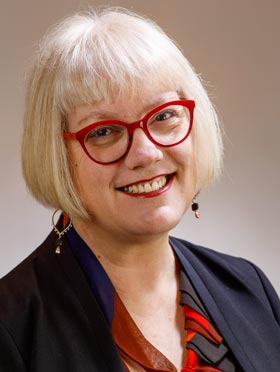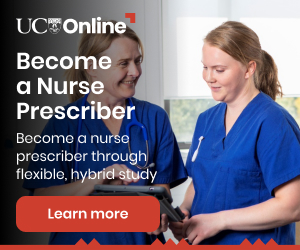
It seems the only certainties of modern life are change, ageing and taxes. (Death was cut from the list – it no longer qualifies thanks to our lingering Facebook accounts.)
From paper to digital notes, from mercury to electronic thermometers, from face-to-face to Facetime: health is changing. With some readers voicing understandable concerns about the digital divide, Kai Tiaki set out to discover if we’re really ever too old to keep learning.
Firstly, the nursing world is indeed changing. Its workforce is getting a little grey around the edges.
The Nursing Council’s New Zealand Nursing Workforce 2018-2019 profiles say the average age of the workforce was about 46 at the time of publication. The number of people aged more than 50 was nudging half of the workforce – about 43 per cent.
So, are these people over 50 fazed by digital challenges, and change? But perhaps more importantly, can Aotearoa afford to leave them behind if they are?

Age Concern chief executive Stephanie Clare has been a registered nurse for 35 years – and is still actively learning every day in the job.
She said older nurses would “hold the system together” as the demands to meet workforce needs increased.
Clare was confident older nurses could keep up with digital change – and had already been adjusting to this new world. In fact she was upbeat about the digital future.
“When we started nursing many years ago we might have used paper notes, but now we use digital notes.”
The Nursing Council had itself adopted change – the “little red cards” for annual practising certificates were gone, she said. “To even get our… certificate we have to use digital.”
Change might be difficult, she said, but it came with “communications and digital connections that haven’t happened before”.
Nurses were already digitally savvy, she said, because they worked in a changed health system.
“I remember when a thermometer had mercury in the middle – now we’ve got digital thermometers; blood pressure cuffs that are automated… there are no industries that haven’t changed over the past decades, and nursing is no different.”
However, older nurses were probably still keen to get more training and support, she said.
The number of people aged more than 50 was nudging half of the workforce – about 43 per cent.
It was a case of helping older workers continue working for as long as they wanted. “Both contributing to their own wellbeing, but [also] for that of the… health system, primary practice, hospitals. We’re all holding this together.”
Clare had just attended an online gerontology conference offering multiple speakers, which had undoubtedly drawn gerontology nurses who were NZNO members.
“That ability to be connected with those of like minds without having to leave your home or workplace, would only be more beneficial for the people that we look after.”
The good news was that Age Concern offered assistance and advice for people of all ages – not just those over 65. So if members wanted to find out more about its digital assistance resources they could visit a local office, found in the phonebook, or online at Age Concern New Zealand.
Never too late to learn
Meanwhile the question of whether digital upskilling is possible once we enter the misty realms of ages 50-plus was something to which University of Waikato education lecturer Diana Amundsen had a simple answer: yes, and COVID-19.
The pandemic, with quarantine and lockdown containment measures, was a “sink or swim” moment for people to use digital technology.
“Rapidly, it became vital to order groceries online, conduct banking online, connect with family and friends through technology, and communicate with health-care providers, often online. Online vaccine passports are another example of these ‘sink or swim’ moments.”
Fortunately, she said learning never stops in our lives.
“When we reach adulthood and leave schooling behind, all our learning is voluntary. We are self-motivated because we need or want knowledge for personal and professional reasons.”
Amundsen said psychologists understood that technology would never be a replacement for human interaction.
“But learning a new type of digital technology, which may be uncomfortable at times, is ultimately positive for our health and wellbeing, especially in this new-normal, COVID-19 context for enhanced connection.”
Inga Hunter, health services management programme director at Massey University, said learning never stopped.
In fact, linking age with problems using digital tools might not even be entirely correct.
She said research showed older people had adopted new technology very well: “Use is extensive and age is not an indicator of use.”
Some people need support, she said – but then again, so do some younger people.
Age Concern offers assistance and advice for people of all ages – not just those over 65. So if members wanted to find out more about its digital assistance resources they could visit a local office, found in the phonebook, or at Age Concern New Zealand.
Hunter said people seeking to upskill might want to keep their own learning style in mind. People learn in different ways, whether that’s via text, audio, or visually.
Short videos were often popular for helping people learn new skills, as was recruiting help from within the whānau.
“Local technology champions is a developing concept in communities – [which means] ringing the local ‘champion’ for help.”
So, in the end those new modern certainties that include change might have some real benefits.
Learning is often difficult, and challenging, but ultimately we grow from our newfound knowledge – and the journey itself.
As we age, it might be that it is not just the world transforming, but us transforming with it. On taxes, there’s nothing to be done.



